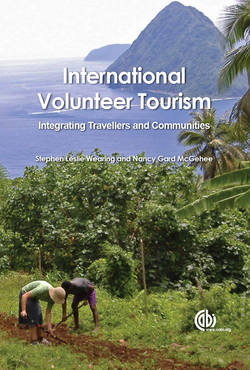Читать книгу International Volunteer Tourism - Stephen Wearing - Страница 17
На сайте Литреса книга снята с продажи.
2 Alternative Tourism Experiences Introduction
ОглавлениеThe original version of this chapter first appeared in Volunteer Tourism: Experiences That Make a Difference, written in 2001. Here, we revisit the major themes concerning alternative tourism experiences in order to demonstrate where volunteer tourism sits on the tourism continuum, and how it contrasts with mass tourism experiences.
Tourism in general has developed as a modern, largely Western endeavour, the analysis of which has evolved from pre-modernism through to postmodernism. Today modern tourism differs considerably from non-Western and historical forms of travel, although it has some similarities (Graburn, 1995). In particular, it has enabled the masses to travel and has been closely related to the emergence of modernity (Cohen, 1995), where consumption is a main tenet. The abundance of the modern Western touristic experiences during this evolution, particularly since the 1980s, has generated a variety of means of researching tourism. Tourism theories and research have emerged from a wide variety of fields and disciplines, including psychology, sociology, geography, ecology and anthropology.
A variety of categories and labels of touristic experiences have emerged within the realm of alternative tourism that reflect both marketing differentiations and ideologically divergent forms of tourism. This includes (but is not limited to) nature, green, special interest, pro-poor, adventure, community-based, war and ecotourism. Many of these forms have caught the imagination of local communities, governments, international non-governmental organizations (NGOs) and the mainstream tourism industry itself, with a variety of such ‘alternative’ projects being actively promoted, especially in developing countries (Cohen, 1972; R.W. Butler, 1990; McGehee, 2002; Bowden, 2005). These projects have in part been used as definitional examples of alternative tourism in order to clarify the associated issues relating to touristic practices (Priporas & Kamenidou, 2003). However, there is currently debate worldwide concerning the benefits and costs of this type of tourism.
Given the divergent backgrounds and concerns of these individuals and organizations, it is not surprising that no universally agreed upon or widely adopted definition of alternative tourism is to be found, and few explicit links have been made between its different forms. It is not the purpose of this book to pursue the quest for an all-embracing definition of alternative tourism. It is important, however, to recognize that the diversity and range of tourism in fact emphasizes the need for a systematic approach to classifying the varied elements of the tourism experience (Pearce, 1989). In this case, we are focusing on volunteer tourism as the ideal type of alternative tourism.
